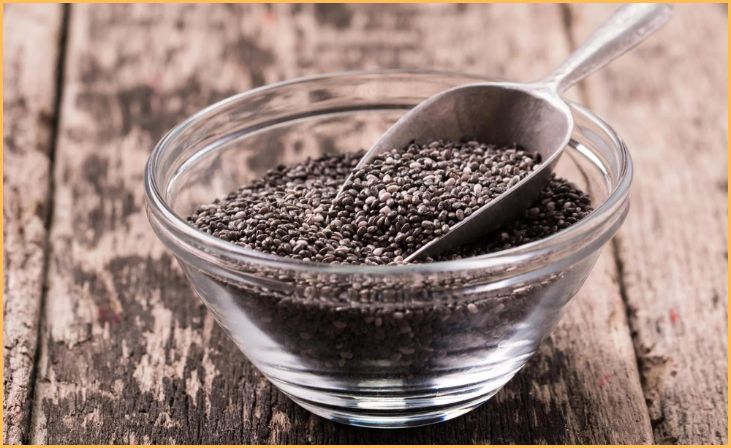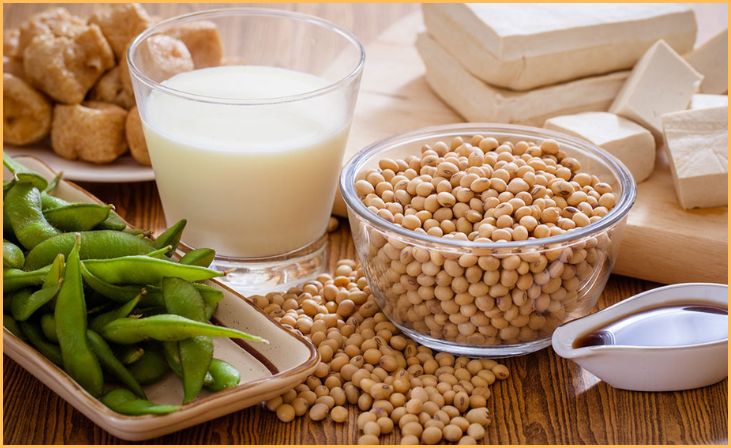In our quest for overall well-being, the importance of nutrition cannot be overstated. The impact of food on our physical health is well-known, but its influence on brain and heart health is equally significant. Omega-3 fatty acids, in particular, have been identified as powerful nutrients that play a crucial role in supporting brain and heart health. Incorporating foods rich in omega-3s into our diet can have a profound impact on cognitive function, mood, and cardiovascular well-being.
In this blog post, we will explore five amazing foods that are abundant in omega-3 fatty acids, offering a natural and delicious way to boost brain and heart health. By including these foods in your diet, you can nourish your body and support vital aspects of your overall health.
These Omega-3 Foods to Boost Your Brain and Heart Health
Omega-3 fatty acids are well-known for the many positive effects they have on one’s health, particularly in terms of enhancing one’s mental and cardiovascular well-being. These essential fatty acids are crucial to the proper operation of your body and have been shown to lower the risk of cardiovascular disease, improve cognitive performance, and boost mental well-being. They are also an important part of a healthy diet. In this piece, we will discuss the top five foods that are abundant in omega-3s and have the potential to dramatically boost your general health and vitality.
Quick Link: 10 Amazing Healthy Foods That Boost Energy
Chia Seeds

Chia seeds, despite their diminutive size, deliver a powerful nutritional punch thanks to their high omega-3 content as well as other vital components like fiber and protein. In recent years, chia seeds have seen a meteoric rise in popularity due to their status as a nutritional powerhouse. In addition to being a rich source of omega-3 fatty acids, they also provide a wide range of other nutrients that the body needs to function properly. Because of their adaptability, chia seeds are an excellent dietary addition that is simple to use in a normal routine.
Chia seeds make it easy to increase the amount of omega-3 fatty acids you consume because they can be used in a variety of ways (for example, you can add them to your morning smoothie, sprinkle them on oatmeal, or use them as a topping for yogurt).
Fatty Fish
Omega-3 fatty acids can be found in abundance in fatty fish such as salmon, sardines, herring, mackerel, and trout. When it comes to the quality of omega-3 sources, fatty fish is frequently regarded as the gold standard. Salmon is one of the selections that sticks out as being one of the most popular and easily accessible choices among them.
Fatty fish are an excellent source of high-quality protein as well as a variety of other necessary nutrients, in addition to the ample supply of omega-3 fatty acids that they give. Whether you like your fish grilled, roasted, or poached, including these delectable preparation methods in your diet will considerably boost the amount of omega-3 fatty acids you take in.
Soybeans and Soy Products

For a plant-based source of omega-3 fatty acids and other vital nutrients, including tofu, look no further than soybeans and products made from soy. Soybeans and goods made from soy are excellent selections to make if you are following a vegetarian or vegan diet or if you simply prefer options that come from plants. In instance, soybeans have a high concentration of omega-3 fatty acids, as well as protein and a wide range of other important elements.
Tofu, a flexible soy product, provides a hassle-free approach to enhance the amount of omega-3 fatty acids in your diet. Soy products can help you maintain a healthy, balanced diet that is high in omega-3s, regardless of whether you are attempting new stir-fry recipes or looking for ways to improve the flavor of your salads.
Flaxseeds
The consumption of flaxseeds, which are very small but powerful seeds, is a simple way to increase your omega-3 consumption. The high omega-3 concentration of flaxseeds, together with their many other positive effects on health, has led to its widespread recognition as a “superfood.” These little seeds can easily be incorporated into your regular diet without causing any disruptions.
Increasing your consumption of omega-3 fatty acids can be as easy and delicious as incorporating them into your morning smoothie, cereal, or yogurt. Flaxseeds are a wonderful option for one’s overall health because, in addition to containing omega-3 fatty acids, they are also rich in fiber and important nutrients.
Also Read: Best 9 Dry Fruits to Help You Gain Weight: Nourishing and Delicious Choices
Walnuts

Walnuts are an excellent source of omega-3 fatty acids, protein, and fiber, all of which contribute to improved health when consumed in small amounts. Walnuts are not only an easy-to-carry and delectable snack, but they are also an excellent source of omega-3 fatty acids. Walnuts can be found in almost any grocery store. In addition to a high quality of protein and dietary fiber, they offer a sufficient quantity of omega-3 fatty acids.
Including a handful of walnuts in your daily routine is an easy way to make a choice that is good for both your brain and your heart, as they are beneficial to both of these organs.
Final Thoughts
Incorporating omega-3-rich foods into your diet is a proactive step towards enhancing brain and heart health. The consumption of fish, particularly cold-water fatty fish like salmon, tuna, halibut, trout, mackerel, sardines, and herring, provides a rich source of omega-3 fatty acids. Additionally, plant-based sources such as flaxseeds, chia seeds, and walnuts offer an excellent alternative for individuals following a vegetarian or vegan diet. By making these foods a regular part of your meals, you can harness the powerful benefits of omega-3s to support cognitive function, mood, and cardiovascular well-being. Remember to maintain a balanced diet and consult with a healthcare professional for personalized dietary recommendations to optimize your brain and heart health.
FAQs
Omega-3 fatty acids, particularly EPA and DHA found in fish, have been linked to various benefits, including reduced risk of heart disease and improved cognitive function. They contribute to the structure of cell membranes and play a role in anti-inflammatory processes.
Yes, plant-based sources like flaxseeds, chia seeds, and walnuts provide alpha-linolenic acid (ALA), a type of omega-3. While not as potent as EPA and DHA, ALA can be converted to these forms in the body, contributing to overall omega-3 intake.
The American Heart Association recommends at least two servings of fatty fish per week for heart health. However, it’s essential to consult with a healthcare professional to determine the right amount for your individual needs and health goals.
While omega-3 supplements can be beneficial, obtaining these fatty acids through whole foods is generally recommended. Whole foods provide a spectrum of nutrients and are part of a balanced diet, promoting overall health. Consultation with a healthcare provider is advised before considering supplements.







